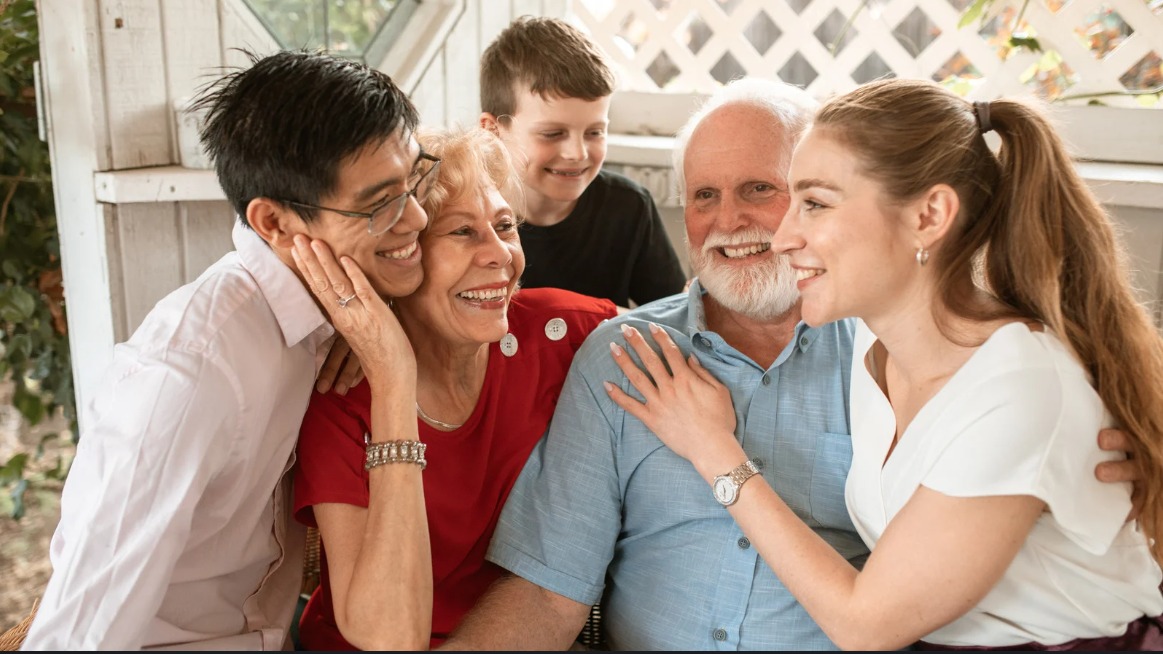
World Teen Mental Health Day
Mental health and wellness is a phrase you might have heard bouncing around recently, but what does it really mean? Children’s mental health and wellness sits at the heart of what we do here at the Conscious Parenting Revolution. This year, on World Teen Mental Health Day (March 2nd), we hope to clarify some common misconceptions about childhood mental health, and provide some useful tips for Conscious Parents everywhere!
There is so much pressure on young minds today, much more than one would expect at a cursory glance!
Pressure to fit in with new TikTok crazes and keep up with online appearances…
Pressure of keeping up with homework and extracurriculars…
Pressure to learn how to re-socialize post-pandemic…
Pressure to cope with the reality of gun violence in the US and some other countries and an ever changing climate…
Truly, life can be tough for children and teens, and we are just scratching the surface!
It’s true, every child will deal with life’s momentous challenges in their own particular way. However, while it can be difficult to discern at times, there is a difference between simply treading water and drowning. As a parent who has concerns about the impact of anxiety and a heightened sense of worry in your kids, there are signs to look out for when your kids start to go under.
Some signs are simple, such as avoiding meals or activities they would typically do for fun, worrying all the time, or expressing indifference/apathy towards themselves and others. Although it may seem obvious if your child is telling you they are worried, often as a parent, you may not notice they are saying it more frequently than before. Especially when the whole world around you is saying the same thing!
Other manifestations can be more difficult to identify, such as your kids becoming irritable or upset more quickly than usual, jumping right into shouting or even crying. It is also common for kids in distress to retreat within themselves, becoming introverted or quiet, seldom leaving their bedrooms. Consistent with other avoidance behaviors, they may also report having headaches or other aches and pains. While many of these behaviors occur normally throughout one’s life, an unexpected increase in frequency can be a telltale sign of a child experiencing difficulties with their mental health.
It is important for parents or caregivers to take note of these behaviors so that the underlying issues can be addressed and resolved. Usually, such behavior can be adequately soothed by a parent offering sufficient comfort. Still, if your child’s behavior persists, it can be a sign of a more severe problem. And of course, if their behavior causes significant concern, you should always seek professional help.
Prior to the pandemic, one in eight children were estimated to display signs of anxiety. However, recent estimates suggest this number could have significantly increased. Therefore, as a parent/caregiver, it is imperative that you are vigilant.

Different Types Of Anxiety In Children
Generalized Anxiety Disorder:
Signs are excessive, and what a parent would consider unnecessary worry.
Panic Disorder:
Regular displays of out-of-character intense fear can also manifest themselves with physical symptoms such as headaches, stomach cramps, shortness of breath, and even dizziness.
Social Anxiety Disorder:
This is when a child deliberately avoids any uncomfortable social situation.
Specific Phobias:
This is when a child will express fear and avoidance of a specific object or situation such as a fear of a particular animal, dogs, for example, going on an airplane, or having a check-up with a doctor or dentist.
Separation Anxiety Disorder:
When a child becomes upset and distressed before, during, or after being separated from a parent or caregiver.
Panic Attacks:
Rare in younger children, but parents should be aware of symptoms, including palpitations, a faster heart rate, sweating and shaking, shortness of breath, and chest pains.
Selective Mutism:
When a child refuses to speak to certain people or in certain situations, it usually indicates more than the child is just shy. Such a youngster may start to be anxious when they are about to be in a position where they know they will have to speak.
How To Address Anxiety In Your Kids
Just like any problem left unaddressed, childhood anxiety can quickly snowball into much larger issues – difficulty socializing, falling behind in school, self-harm, etc. Fortunately, there are many effective ways to address anxiety before it gets out of control.
Normalizing emotional expression in your everyday conversations with your kids is a great start. You can model healthy emotional expression by talking to them about your thoughts, feelings, hopes, and fears. Opening up about when you are afraid, feel helpless, or out of control helps your children recognise these feelings in themselves, which is the first step towards being in control of your feelings, and not the other way around!
The next step is having a discussion with your kids about the role of their feelings and emotions. Emotions are here to inform us, not to control us! Speak with them about “sitting with their feelings”, and that they are not their emotions. When a child is experiencing anxiety, it is an emotion they are having, not who they are. Similar to Disney’s Tinkerbell, children and adolescents are prone to becoming their emotions. Let your children know that when they feel anxious, it is something inside them, and not them. Encourage your child to sit with these emotions, acknowledge them, and attempt to discover where they originate from.
Children should be encouraged to participate, too. When your child refuses to go to a birthday party, instead of playing one side or the other (“you have to go”/ “you don’t have to go”), start by sitting with them as they process how they feel. Turn towards them as you listen to their underlying feelings and needs, this will start to settle their nervous system. Begin to empathize and gently ask questions to aid in both your understandings. When we express and accept our emotions they start to feel less overwhelming, and we begin to feel more in control.
Love and Blessings,
Katherine
P.S. In this episode of the Law of Attraction SECRETS Podcast, I chat with Natasha Graziano about her own parenting struggles, so listen in so you can OVERCOME whatever it is you’re going through with your child! Don’t forget to subscribe so you don’t miss a thing!
- Why It’s Okay to Raise Kids Who Are Self-Centered - December 20, 2024
- Navigating Conscious Parenting this Holiday Season - December 13, 2024
- The Power of Intention: A Special Invitation to the Breaking The Ice Talk - November 12, 2024






